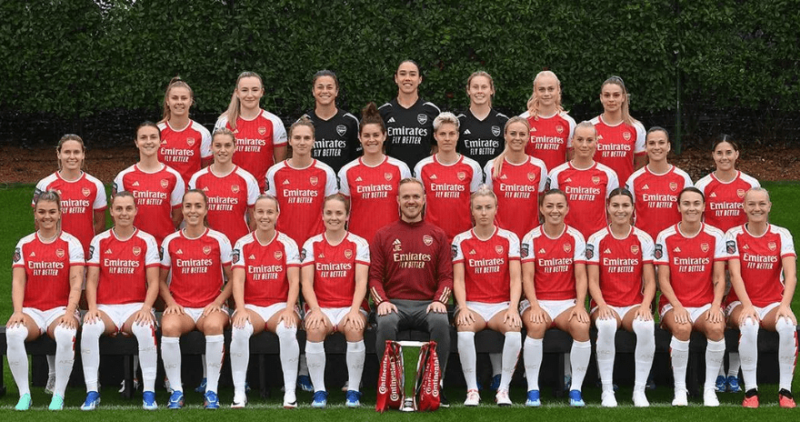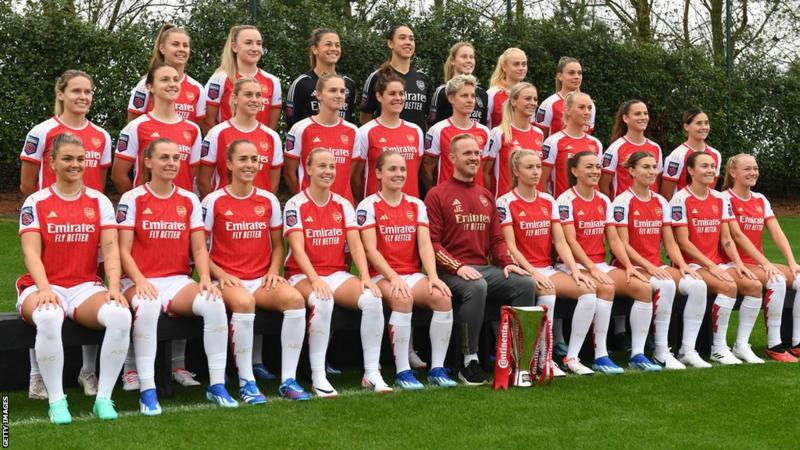Arsenal Women’s team manager, Jonas Eidevall, has addressed the issue of diversity within the squad, acknowledging the absence of black, Asian or ethnic minority players as a significant concern.
Amidst wider discussions on inclusivity in football, Arsenal’s stance highlights a commitment to reflecting the diversity of their north London community.

Arsenal Women’s manager, Jonas Eidevall, has stated that the absence of black, Asian or ethnic minority players in the squad is a “problem”. This response comes after a recent squad photograph drew criticism for not reflecting racial diversity.
The 2023-24 team’s image, which showcases 27 players alongside Eidevall, became a focal point of discussion among fans for having no black or ethnic minority representation. The team, based in north London, has historically been known for its diverse community ties.
“We are very proud of our community. It is a diverse community,” Eidevall said. He highlighted the club’s storied tradition of embracing players from various backgrounds, adding, “So us not having that diversity in the women’s first team today, of course, that is a problem.”
Arsenal, in a statement last month, declared that bolstering diversity remains a “key priority”. The sentiment resonates with broader concerns in women’s football about the inclusion of minority groups.
A review steered by former England player Karen Carney brought to light the imperative of diversifying the sport both on the field and in its governance. The report, which featured insights from ex-Brighton defender Fern Whelan, underscored an “urgent” need to address the homogeneity within the ranks of women’s football.
Statistics from 2021 suggested that black, Asian and minority ethnic players constituted merely 10 to 15 percent of those in the Women’s Super League (WSL). Eidevall added his voice to the discussion, stating, “I think women’s football has a diversity problem in getting especially people of colour involved more in football, not only at the top level but also at the grassroots level.”
The manager believes that it is not solely a responsibility for Arsenal but also for the Football Association (FA) and other clubs to work collectively towards a more inclusive football community.
With an intent to ensure that everyone feels welcomed in the sport, the discussion around diversity in women’s football continues to gather momentum, with Arsenal and Eidevall at the heart of this significant, and long overdue, conversation.

